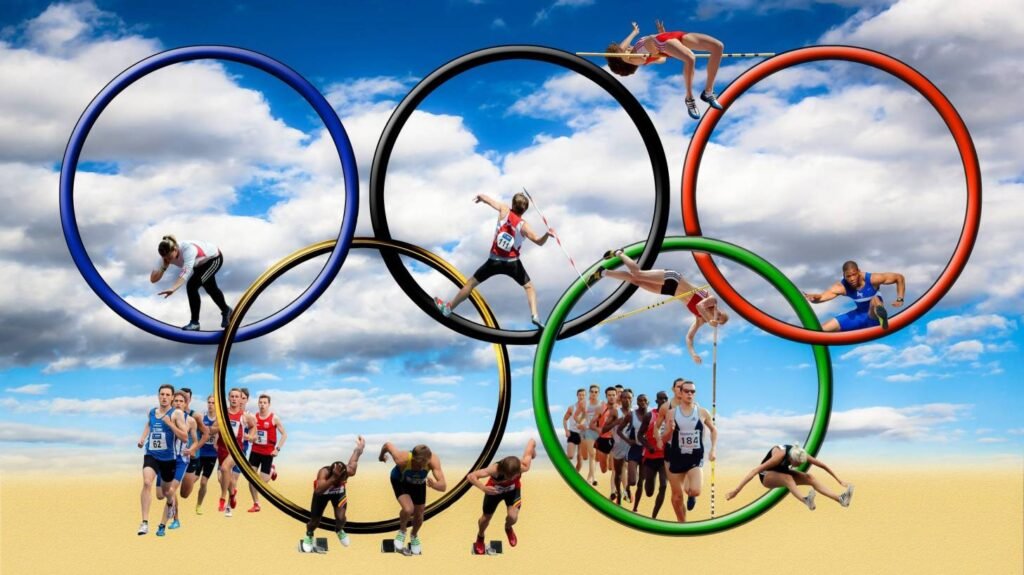The Olympic Games, known for their grandeur and prestige, are not just an international sporting event; they symbolize the power of unity, resilience, and human achievement. Every four years, the world gathers to watch athletes from all corners of the globe compete in a display of skill, dedication, and sportsmanship. Whether it’s the summer or winter edition, the Olympics represent more than just sports—they embody the spirit of togetherness and international cooperation.
The Origins of the Olympic Games: A Glimpse into Ancient History
The history of the Olympics dates back over 2,700 years to ancient Greece, where the first recorded Olympic Games took place in 776 BC. These early games were held in Olympia, a sanctuary to Zeus, and were initially a religious festival honoring the gods. Unlike the modern Games, the original Olympics were exclusively for men and were a way to display physical prowess and honor the gods with athletic performances.
Over time, the Olympics grew in importance, becoming a major cultural and religious event in the Greek world. The Games featured disciplines such as running, boxing, wrestling, and chariot racing. These events were not only about competition but were a means of bringing together different Greek city-states in peace and solidarity. The Olympics in ancient Greece continued for nearly 12 centuries, until they were abolished by the Roman Emperor Theodosius I in AD 393, who sought to suppress pagan practices.
The Revival of the Olympics: A New Era
The Olympic Games as we know them today owe their revival to Pierre de Coubertin, a French educator and historian. Inspired by the ancient Greek tradition, Coubertin founded the International Olympic Committee (IOC) in 1894 and successfully proposed the idea of reviving the Olympic Games. The first modern Olympic Games took place in Athens in 1896, with 13 countries participating in 43 events.
From that point, the Olympics grew steadily in both size and significance. The Games have been held every four years, except during times of war. The Summer Olympics, originally the only version of the Games, were joined by the Winter Olympics in 1924, catering to sports that require snow and ice. Today, the Summer and Winter Olympics are held in alternating even years, with the Winter Games occurring every four years in the middle of the Summer Games cycle.
The Spirit of the Olympics: Unity, Peace, and Friendship
At the heart of the Olympics lies the principle of fostering unity and peace among nations. The motto of the Olympic Games, “Citius, Altius, Fortius” (Faster, Higher, Stronger), encapsulates the ideals of pushing human limits and striving for excellence. However, beyond individual achievement, the Olympics aim to bring together nations, transcending political, racial, and cultural divides. The Games are a platform where athletes represent their countries, yet they compete in a spirit of friendship and respect.
The Olympic torch relay is a powerful symbol of this unity. The torch, which is lit in Olympia, Greece, and carried across the world to the host city, symbolizes the connection between ancient and modern times and the global unity of the Games. The flame itself represents hope and the enduring spirit of the Olympics.
The Evolution of the Olympic Games: Expanding and Adapting
Over the years, the Olympics have evolved to reflect changes in society, technology, and sports. The number of events has grown exponentially, with the Games now featuring a vast array of sports, including gymnastics, swimming, athletics, basketball, tennis, and more. New sports are regularly added, such as skateboarding, surfing, and karate, showcasing the changing tastes and interests of athletes and viewers alike.
Women’s participation in the Olympics has also evolved significantly. In the early years of the modern Games, women were excluded from many events. Today, women compete in nearly all sports, and the number of female athletes continues to rise. The 2020 Tokyo Olympics were historic for the fact that they had a gender-balanced participation rate, with women making up nearly 49% of the athletes.
Additionally, the paralympic movement has given athletes with disabilities the opportunity to compete on the world stage. The Paralympic Games, which run immediately after the regular Olympics, are a celebration of strength, perseverance, and the power of the human spirit.
